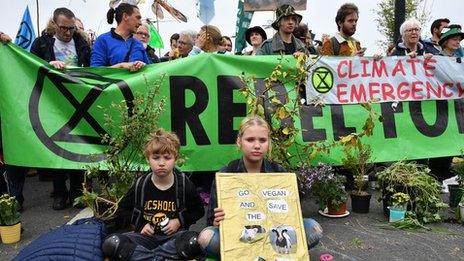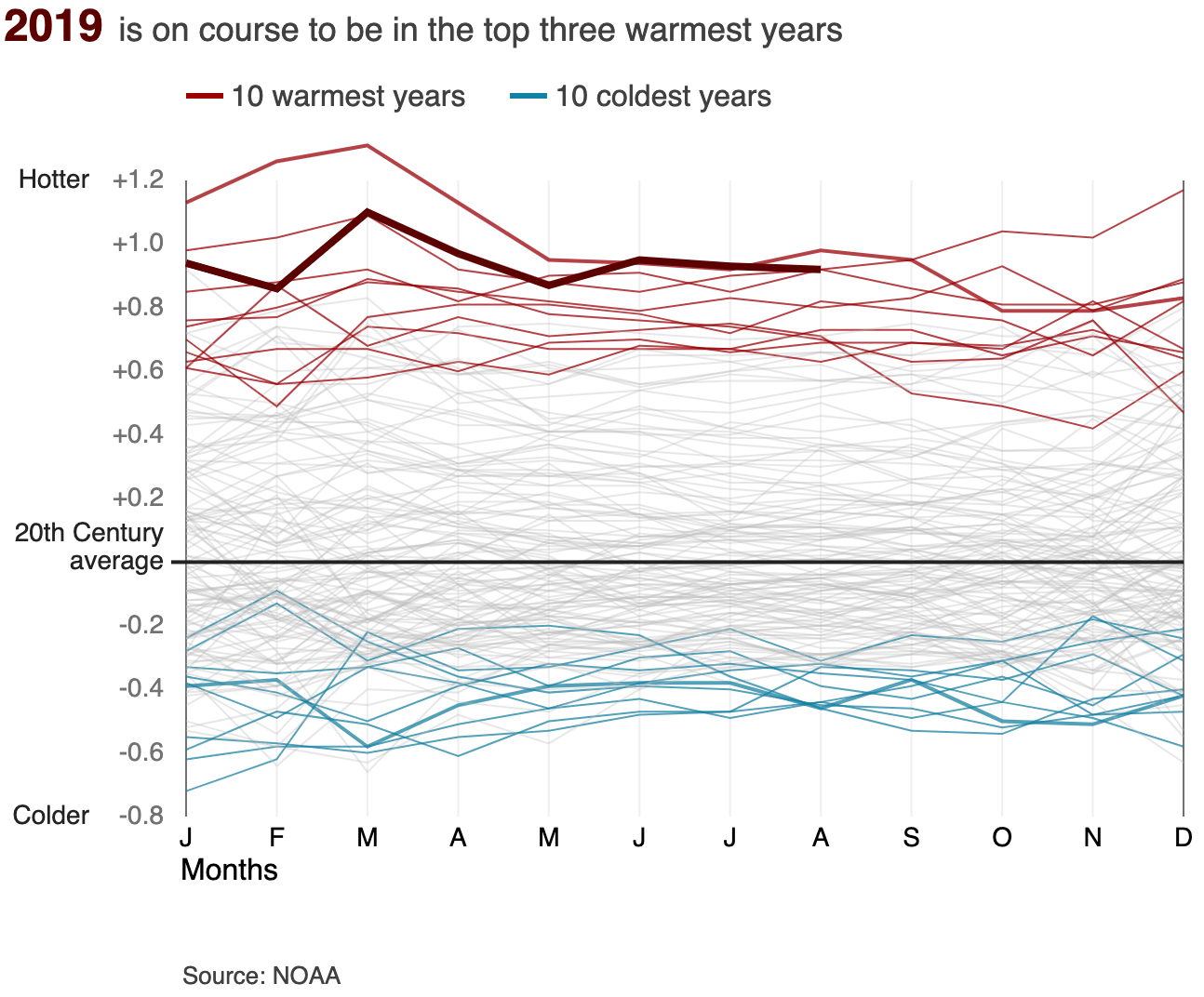Extinction Rebellion: London Stock Exchange blocked by climate activists
- Published
Protesters blocked the London Stock Exchange and climbed on top of a Docklands Light Railway train
Climate activists blockaded the London Stock Exchange by gluing themselves across the entrances.
Protesters from Extinction Rebellion attached themselves to walls and to each other at the financial centre in the City of London.
A group also climbed on to a Docklands Light Railway (DLR) train at Canary Wharf and held up banners.
Protesters at both locations were later removed, but police warned of disruption throughout the day.
Elsewhere in the City, temporary road blocks have been set up by activists at Bank and Southwark Bridge.
Nine protesters also glued themselves together in a chain outside the Treasury, preventing people from the entering the Westminster building.
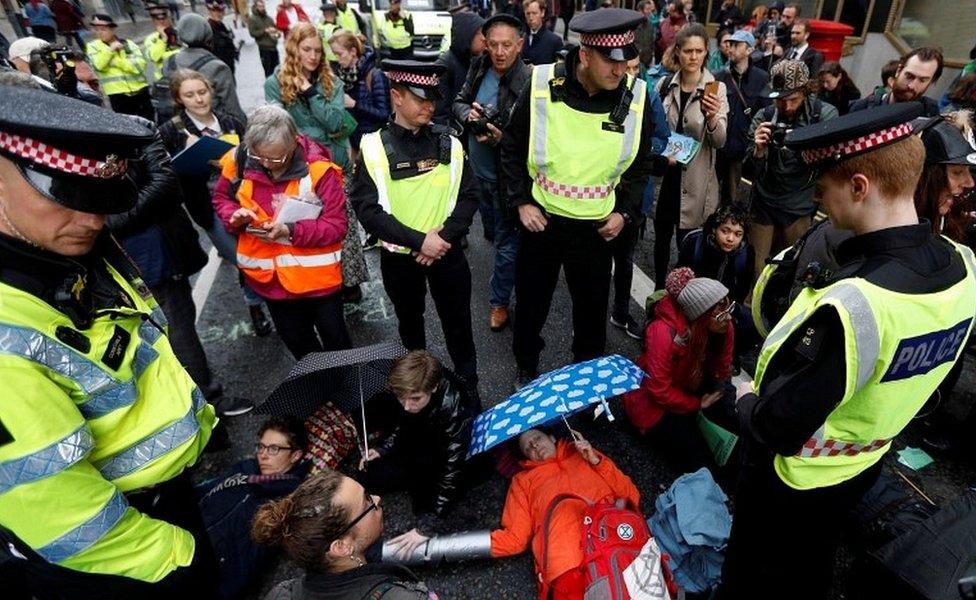
Police said Fleet Street would remain closed for about three hours after it was blocked by activists
Others glued themselves together on Fleet Street outside the Goldman Sachs bank headquarters.
Extinction Rebellion is urging the government to "tell the truth" about the scale of the climate crisis. It wants the UK to reduce carbon emissions to net zero by 2025 and a Citizens' Assembly to oversee the changes needed to achieve that goal.
It said protesters would spend the day focusing on the financial industry "and the corrosive impacts of the financial sector on the world we live in".
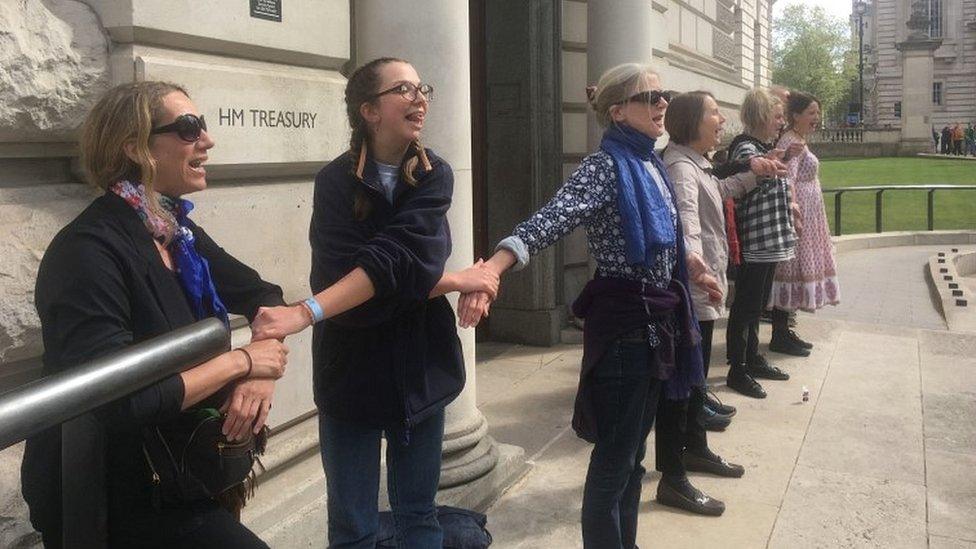
Two men and seven women glued themselves together outside the Treasury in Westminster
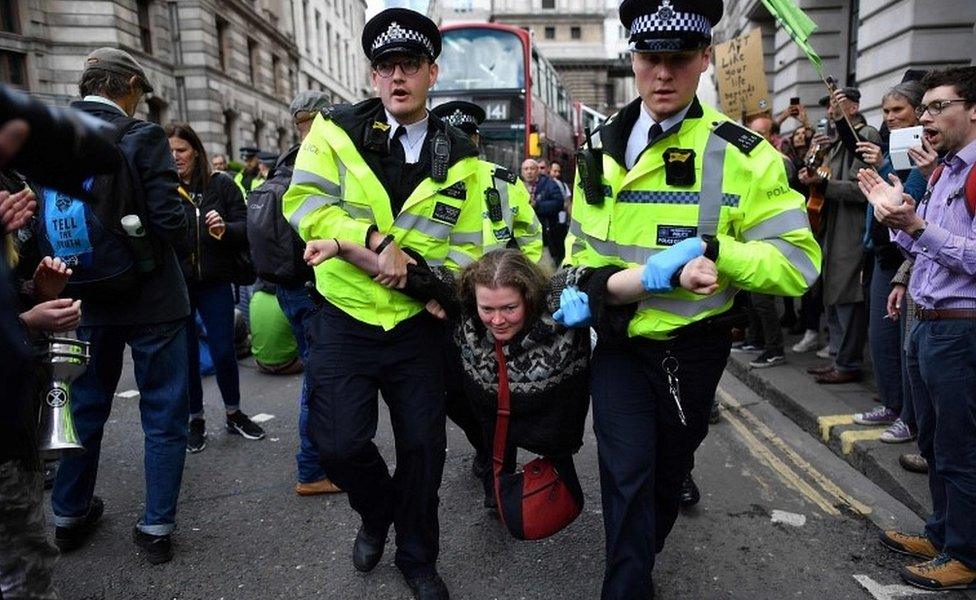
Police removed some protesters from blockades around the City
The 13 activists who blockaded the stock exchange wore LED signs reading "climate emergency", "tell the truth" and "you can't eat money".
One protester, Adam Woodhall, said they had targeted the building because "people are making millions, even billions of pounds out of trading ecological destruction".
The London Stock Exchange said markets were all open as normal in spite of the action.
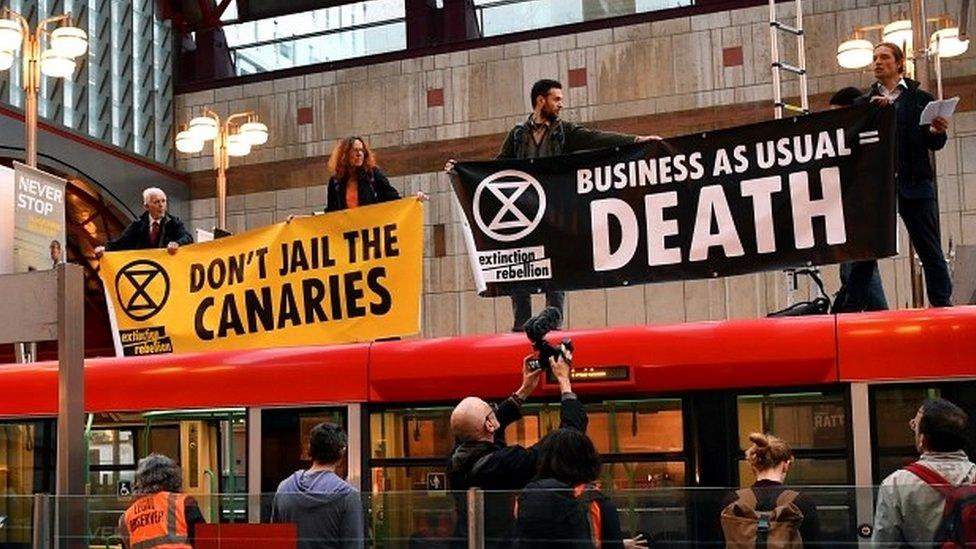
Four people climbed on to a DLR train at Canary Wharf
Four people stood on top of a DLR train holding signs saying "business as usual = death" and "don't jail the canaries". Another activist glued herself to a carriage.
Services were able to continue on the DLR, but there were minor delays between Bank and Stratford/Lewisham.
Officers from British Transport Police used ropes, harnesses and ladders to remove the protesters.
Five people had been arrested on suspicion of obstructing the railway, the force said.
On Thursday, 26 people had been arrested on suspicion of aggravated trespassing outside the Stock Exchange and on Fleet Street, bringing the total number of arrests up to 1,130 since the protests began on 15 April, the Met Police said.
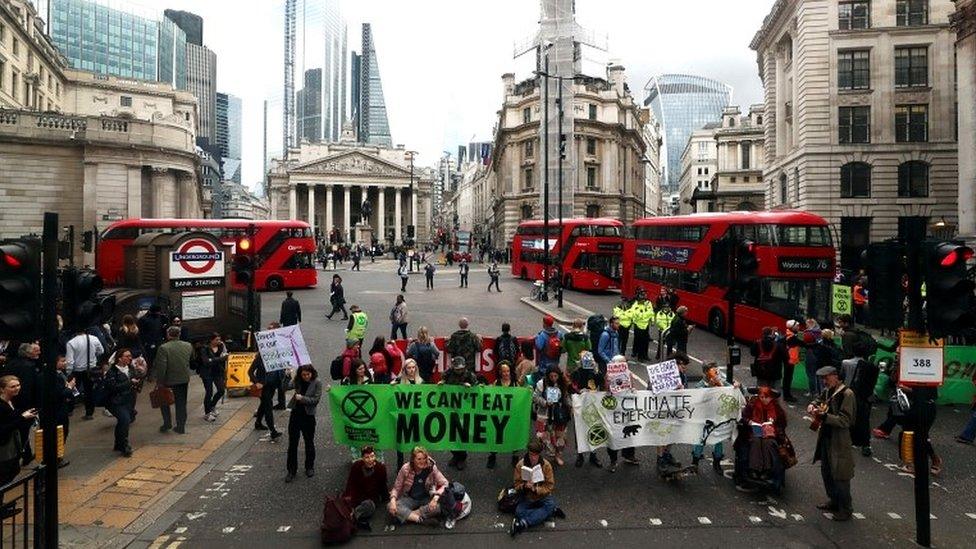
Traffic has been blocked during short protests opposite the Bank of England
The Met said on Wednesday it imposed new conditions on the protest area in Marble Arch, making it a criminal offence to protest outside a designated area or incite others to protest outside of it.
Anyone not sure what is included in the area, marked in red on the map, should ask one of the officers there, the force said.
The conditions, which were imposed under the Public Order Act, will remain in force until 14:45 BST on Saturday.
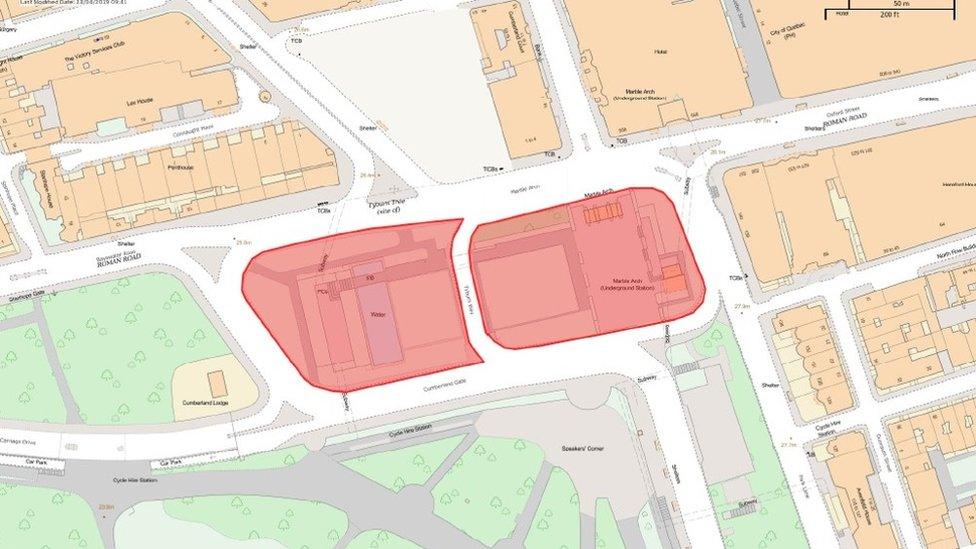
Anyone protesting outside of the area marked in red will be liable for arrest, the Met said
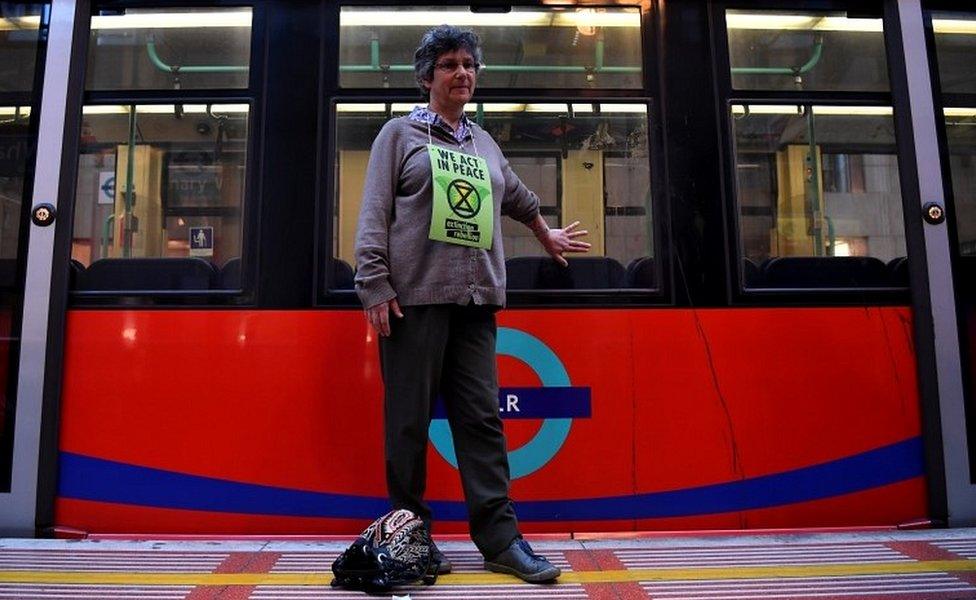
One woman glued herself to a train carriage
The group had previously said it would end its action later in the day, having previously blocked sites including Parliament Square and Waterloo Bridge.
Extinction Rebellion protesters also remain at Marble Arch, although no roads have been blocked there.
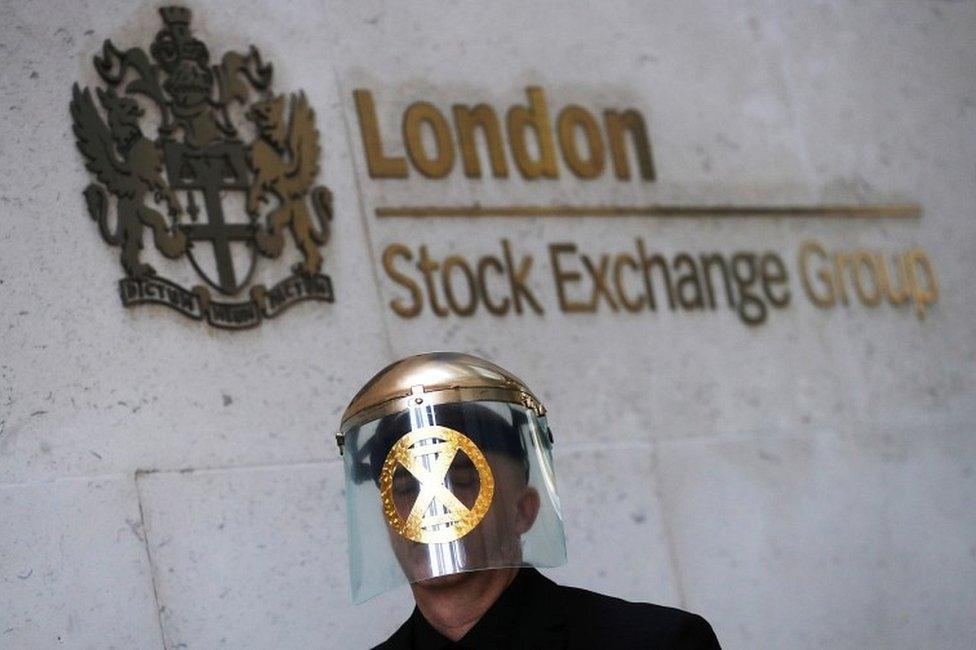
Thirteen activists had been blockading the stock exchange
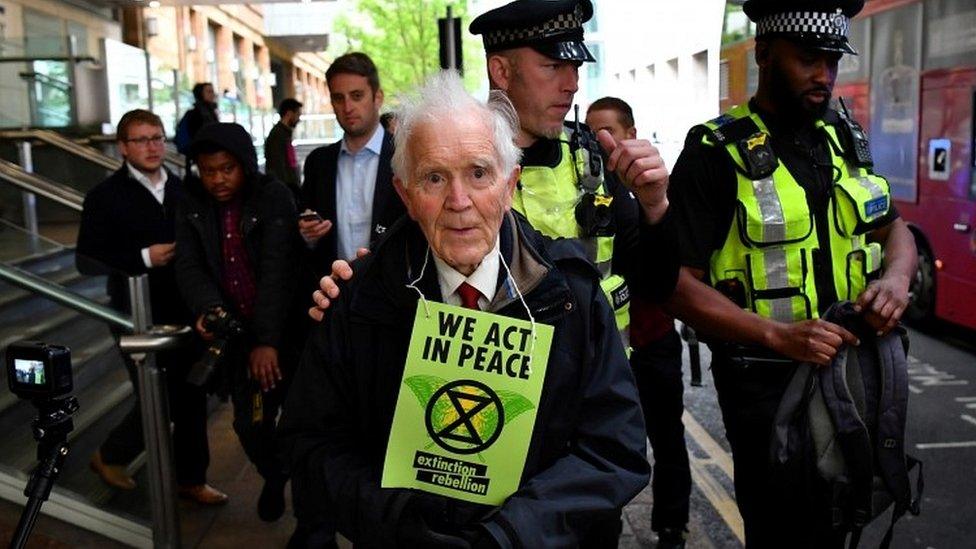
Phil Kingston, 83, was among those taken to custody over the protest at Canary Wharf
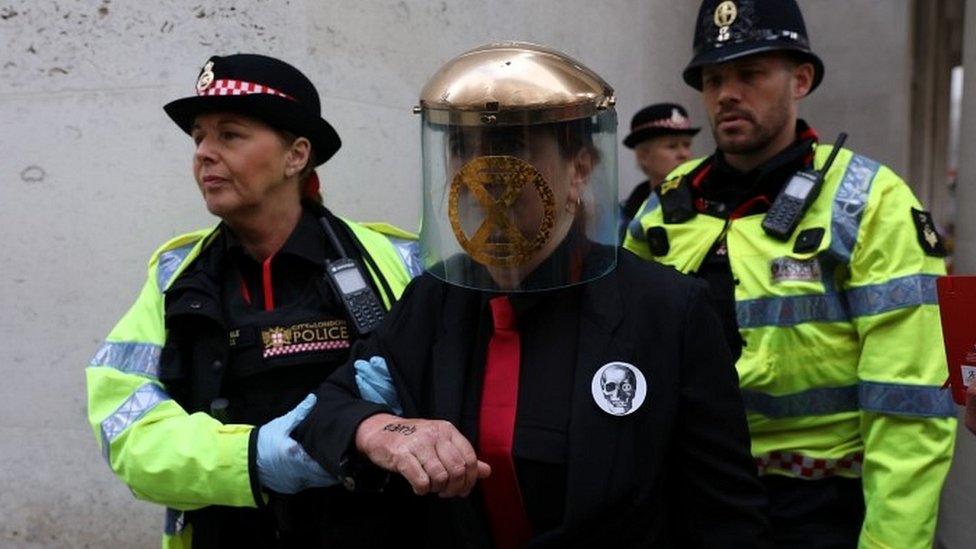
The activists outside the London Stock Exchange were all led away to nearby police vans
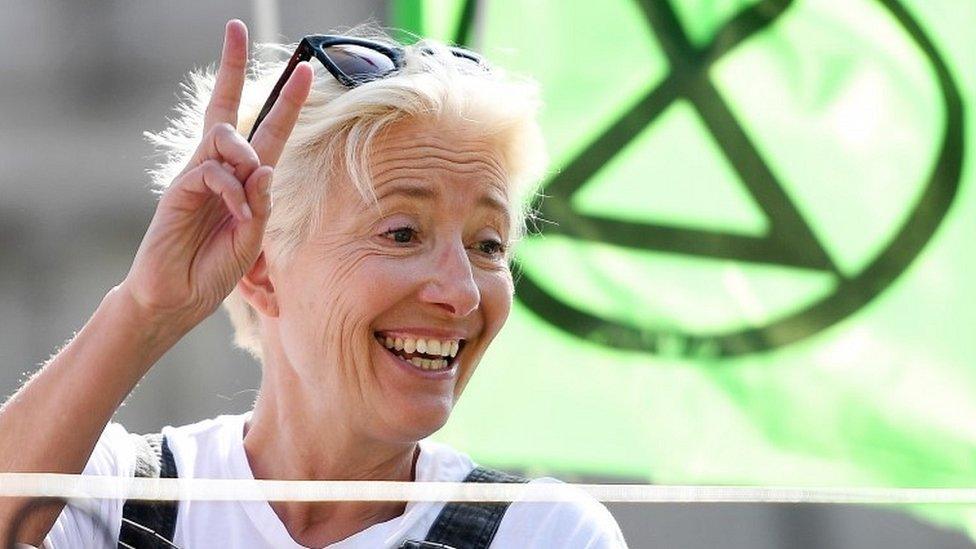
Dame Emma Thompson joined the protests on Saturday
Meanwhile, Dame Emma Thompson, who joined the activists on Saturday, has defended flying from Los Angeles to London to take part.
The actress said it was "very difficult to do my job without occasionally flying" but she was "in the very fortunate position of being able to offset my carbon footprint".
The Hollywood star said people were going to have to fly less as "the future of this planet is at stake".
More than 10,000 officers have been deployed during the action.
Mayor of London Sadiq Khan said the protests had been a "huge challenge for our over-stretched and under-resourced Metropolitan Police".
The group said it would hold a "closing ceremony" at Speakers' Corner in Hyde Park at 17:00 BST.
In a separate protests, environmental activists gathered at the Royal Bank of Scotland's (RBS) headquarters in Edinburgh, demanding further action to combat climate change.
The campaigners are calling on the bank and others to fully commit to ending the financing of fossil fuel projects.
An RBS spokesman said: "Our exposure to the power, oil and gas sectors has reduced substantially in recent years and now accounts for approximately 1.2% of our total lending.
"We have financed more UK renewable energy projects than any other UK bank over the last decade and we aim to be a leading supporter of the low carbon transition, in line with UK and global climate goals."


- Published24 April 2019
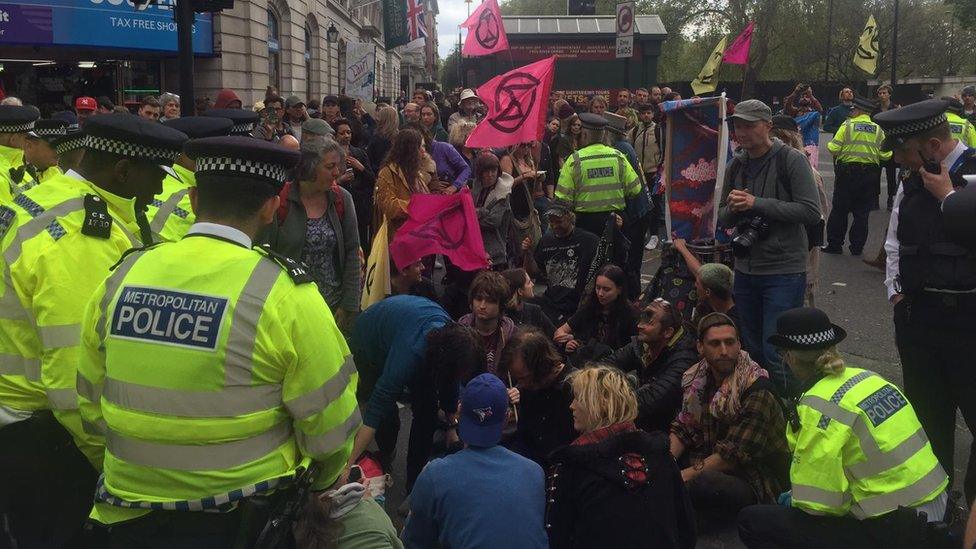
- Published23 April 2019
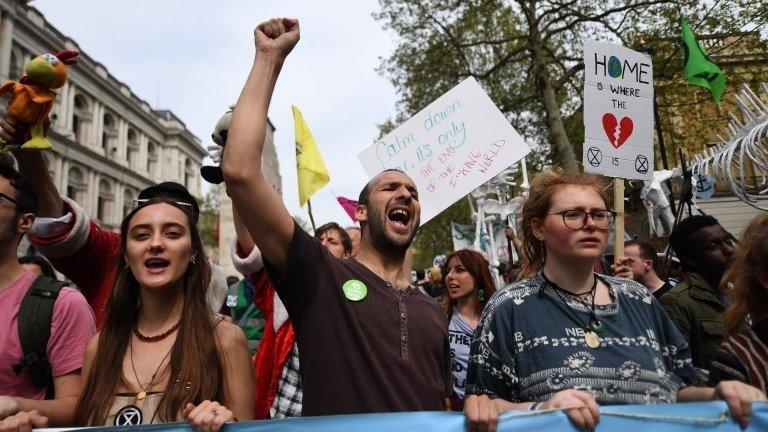
- Attribution
- Published22 April 2019
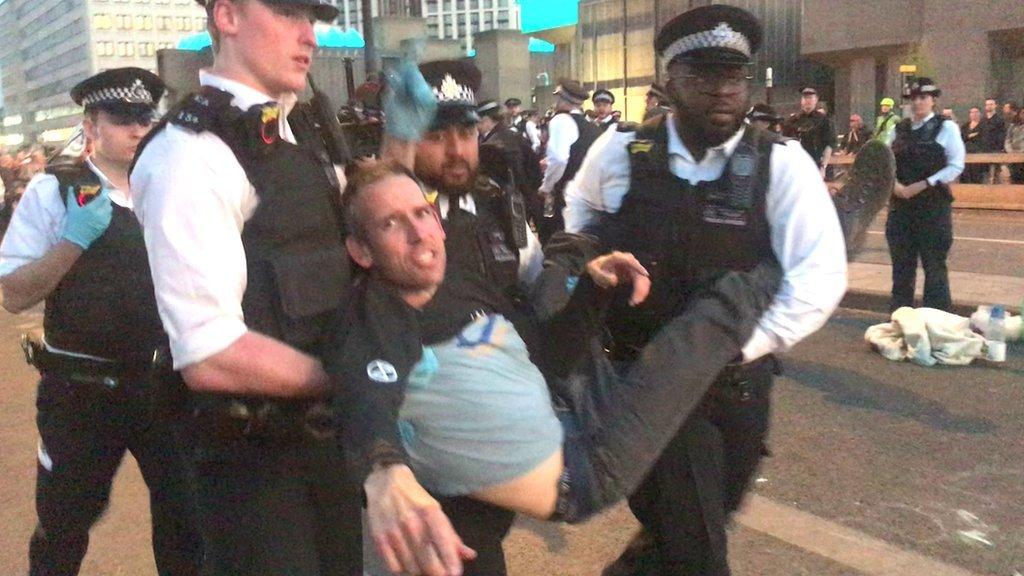
- Published18 April 2019
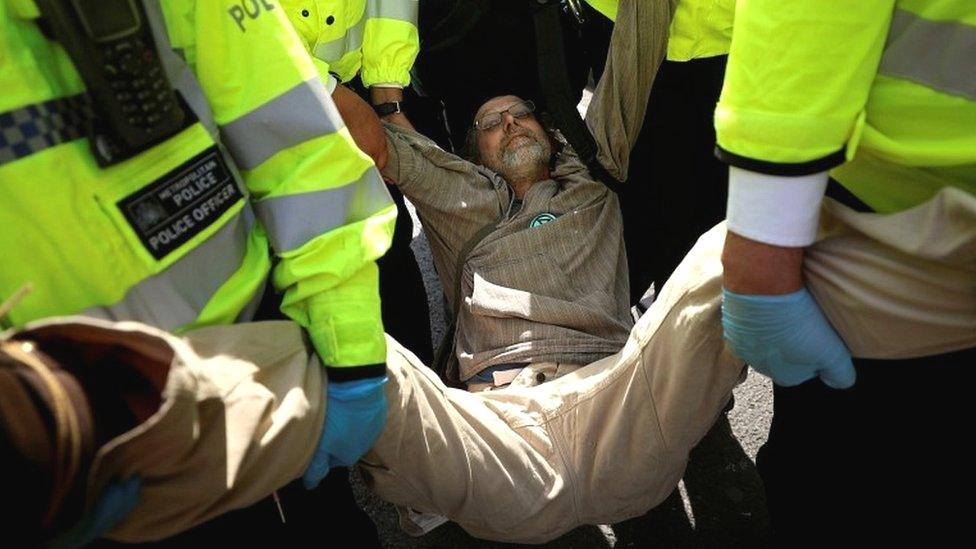
- Published16 April 2019
